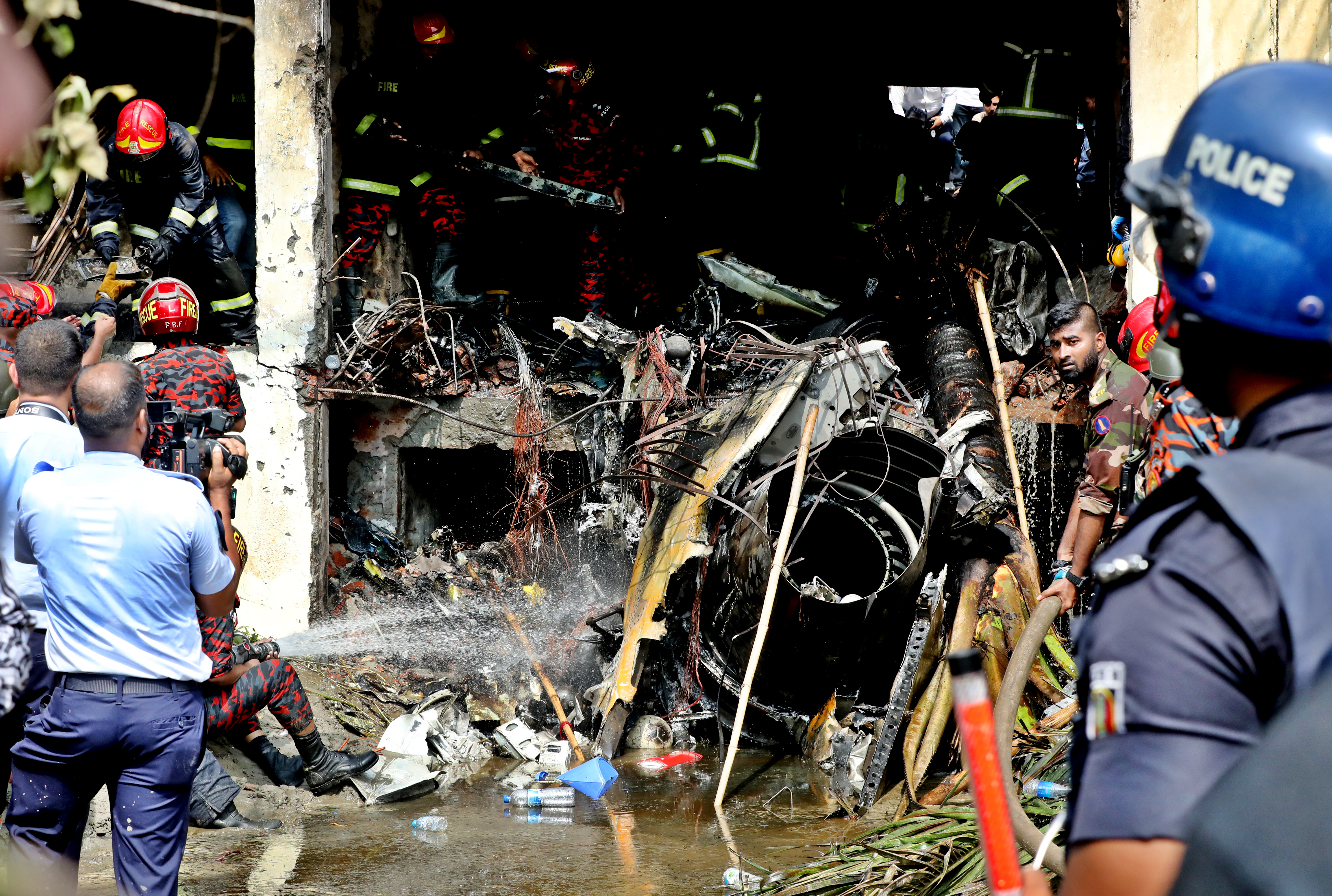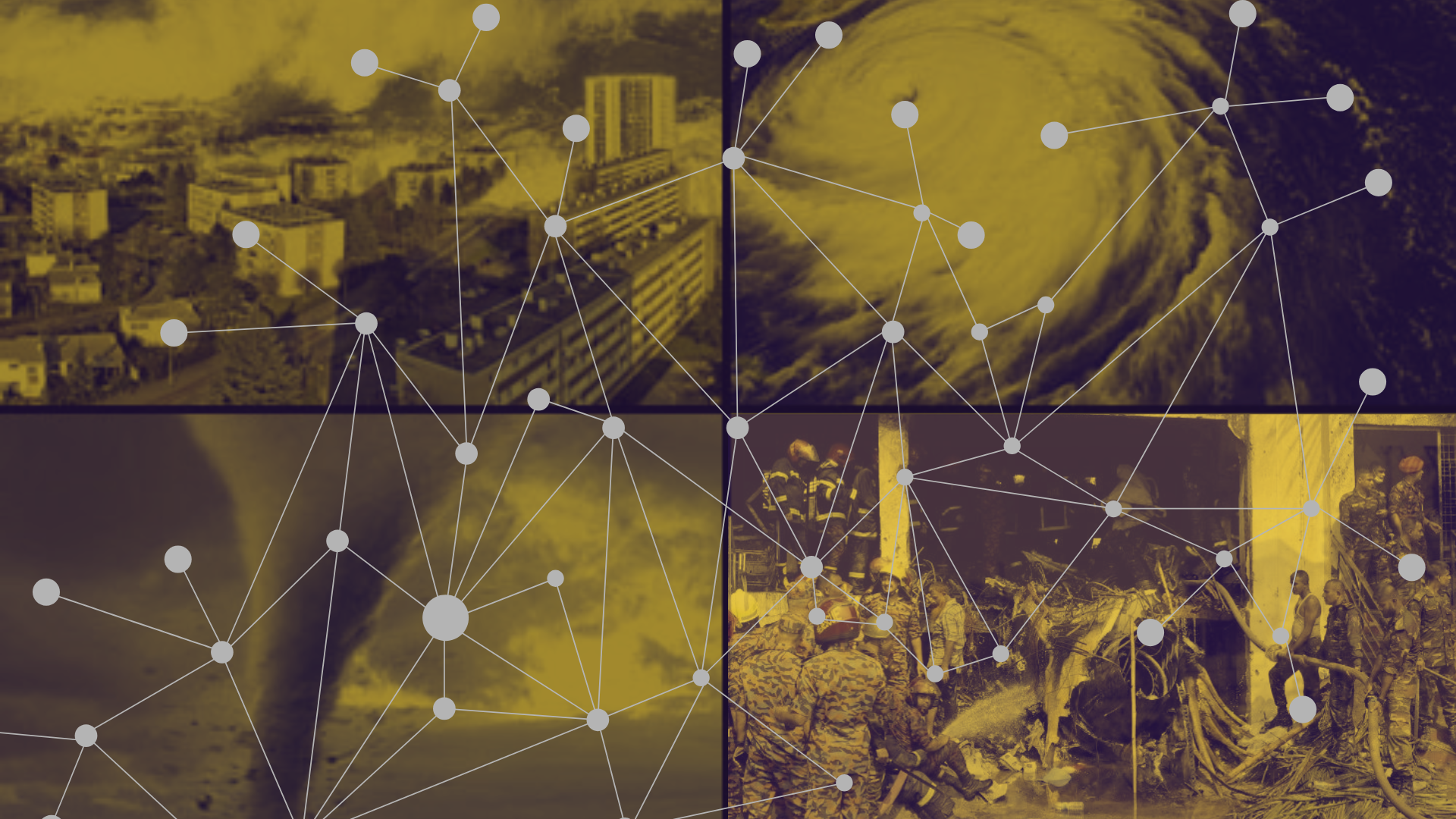The burning skies of Uttara and the questions we refuse to ask

There are tragedies that announce themselves with sirens. Others arrive silently, suddenly, and without warning—piercing through the skies and shattering everything we hold dear. What happened in Uttara on that fateful Monday was one such tragedy, but unlike a natural calamity or a rare accident, this one came riding on the wings of a predictable disaster.
An Air Force training plane, an FT-7 BGI—Chinese-made and designed for training combat pilots—crashed into the Milestone School and College in the heart of a densely populated residential area. The numbers alone are numbing: 35 dead, around 165 injured. Among them were children—some burned beyond recognition—and families torn apart while watching helplessly from outside cordoned-off zones. Screams echoed across Uttara, not just from those caught in the flames, but also from those stuck in traffic, stuck in grief, stuck in the paralysis of a broken system.
But numbers, though horrific, can never fully capture the human weight of such an incident. What do we say to the mother whose child did not return from school, not because of any illness or academic failure, but because a fighter jet fell from the sky? What words can possibly console a father, clutching a half-burnt schoolbag, screaming outside the emergency ward because the ambulance didn't arrive in time? How do we explain to siblings, to classmates, to teachers, why their school became a graveyard?
It is moments like this that bring us face to face with the silent monstrosities we have normalised. The jet did not just malfunction. The system did. The policy did. The very idea of using the skies above our crowded capital for risky solo flight training is a philosophical failure—an affront to reason, to precaution, to the sanctity of life. If a training jet had crashed in an uninhabited region of Barisal or Rajshahi, the damage might still have been serious, but it wouldn't have taken the lives of innocent children who were simply attending school on a Monday afternoon.
Why must the congested airspace above Dhaka serve as a practice ground for military aircraft? This isn't an isolated question. It's a mirror held up to our collective priorities. This is not the first crash of a training aircraft in Bangladesh. Since independence, there have been 27 such incidents—many during solo flights. Yet each time, we cover the wreckage with a shroud of silence, perform ritual condemnations, and wait for the next crash. No one asks why the crashes keep happening. No one questions why solo flights are carried out over residential areas. And if they do, their voices are drowned out by the familiar refrain: "An investigation committee has been formed."
The Air Force may be tasked with defending our skies, but who defends our streets, our schools, our children? Who is responsible when a weapon meant for war becomes an unintentional missile aimed at civilians?
There are, of course, technical explanations offered. A mechanical fault. A sudden failure in the engine. The possibility of human error. But all these are not answers—they are symptoms.
Our nation's geography offers vast, remote regions—rivers, plains, hill tracts—where such training could be conducted with minimal risk to civilian life. Yet, in what can only be called criminal indifference, we continue to allow military exercises to take place in the sky above one of the most densely populated cities in the world.
And then there is the matter of the response. The fire service received the emergency call at 1:18 pm, 12 minutes after the crash. By then, the school had already erupted into flames. Ambulances were caught in traffic. Fire engines couldn't reach the site. Victims, some still conscious, lay untreated for precious minutes. If tragedy is inevitable in life, delay in rescue is not. But in Dhaka, even rescue services seem trapped in a city that no longer functions. The question isn't just about why the jet crashed. It's also about why we let those who survived the crash die in the aftermath.
The sorrow does not end there. When the military cordoned off the crash site—as is standard protocol to protect sensitive equipment—many parents were still looking for their children. Some were alive, others injured, others gone forever. But information was scarce. Transparency was absent. Teachers and students were reportedly still inside when the area was blocked. Parents screamed. The nation watched.
Students from the school protested at midnight. In their grief, they were clearer, braver, and wiser than many in power. They did not just cry for their friends. They demanded answers. They demanded policy change. They demanded that old jets be scrapped, that training be moved to remote locations, that the value of a student's life not be reduced to a footnote in a military report. Their six-point demand wasn't just a list. It was a manifesto of survival, a cry for accountability, a statement of intelligence and courage. Will the state listen?
What compensation can we offer the grieving families? Is there any currency in which the life of a child can be paid? Governments often announce compensations after such tragedies, and perhaps this time too, such declarations will follow. But let's not pretend that monetary compensation brings closure. What the families want more than anything is not money—it is truth, accountability, and change. They want to know their children didn't die in vain. That someone, somewhere, will say: "Never again."
But we've said "never again" before, haven't we?
Each time a ferry capsizes due to overloading, each time a fire breaks out in a garment factory without proper exits, each time a building collapses, each time we lose lives in accidents that are not truly accidents but design flaws, policy failures, and moral abdications, we promise: never again.
And yet, again comes.
This tragedy is not just a moment of loss. It is a moment of reckoning. In a just society, children do not die in school because of military training exercises. In a functional city, fire engines do not get stuck in traffic when every second counts. In a responsive system, parents do not have to scream for hours to find out if their child is alive. And in a democracy, the people are not treated as threats when they ask questions, demand answers, and seek justice.
But perhaps the most painful question of all is this: what if this is not a failure, but the system working exactly as it was designed? A system where military needs outweigh civilian safety. A system where convenience trumps precaution. A system where policy is dictated not by people's welfare but by inertia, tradition, and disregard.
What is the meaning of national defence if the very people you are defending are killed by your training protocols? What kind of sovereignty is being protected when schoolchildren become collateral damage?
We must reimagine what it means to protect a nation. It is not enough to guard borders if we cannot protect classrooms. It is not enough to fly jets if our ambulances cannot move through traffic. It is not enough to build a military if we are burning our future generation in the name of preparedness.
This is not just a tragic accident. It is a parable for everything that is broken around us. And like all tragedies, it demands more than mourning. It demands a moral awakening.
Will we allow the ashes of Milestone School to settle without consequence? Will the cries of those burned children fade away into another bureaucratic file? Or will this be the moment we finally say: enough?
We owe that much, at the very least, to those who will never return from school again.
H.M. Nazmul Alam is an academic, journalist, and political analyst. He can be reached at nazmulalam.rijohn@gmail.com.
Views expressed in this article are the author's own.
Follow The Daily Star Opinion on Facebook for the latest opinions, commentaries and analyses by experts and professionals. To contribute your article or letter to The Daily Star Opinion, see our guidelines for submission.




 For all latest news, follow The Daily Star's Google News channel.
For all latest news, follow The Daily Star's Google News channel. 

Comments